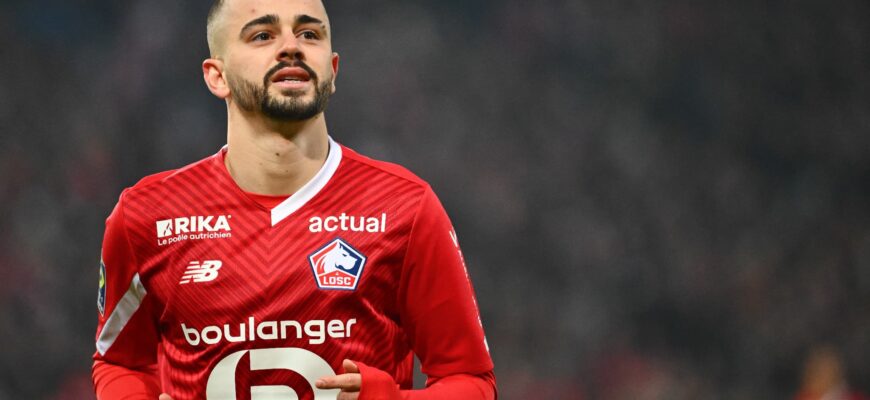In the high-stakes world of professional football, where dreams are often forged on the training pitch, some realities can be remarkably stark. For Edon Zhegrova, the promising winger for French side Lille OSC, the start of pre-season has offered a cold reminder of this truth: not every player is welcome, and not every desired departure is easily facilitated.
A Curious Absence from the Camp
As Lille’s substantial 29-man squad recently embarked on their pre-season preparations in Dortmund, one name noticeably absent from the travel manifest was Edon Zhegrova. He wasn`t alone; fellow peripheral players Mohamed Bayo, Tiago Morais, and Rafael Fernandes also remained behind. This isn`t a mere oversight or a short-term rest period. These individuals, including Zhegrova, have been pointedly kept separate from coach Paulo Fonseca’s primary squad since the initial whistle of pre-season training.
Such exclusions often signal more than just tactical decisions; they speak volumes about a player`s standing within a club. For Zhegrova, this current state of limbo is particularly striking, considering his previous contributions and the complex contractual dynamics at play.
The Contractual Crossroads and Consequential Injury
Zhegrova’s last competitive appearance for Les Dogues dates back to a December encounter against Marseille, a match that ended in a 1-1 draw. The subsequent unraveling of his relationship with the club appears to have taken a decisive turn in January. It was then, reportedly, that the winger declined to extend his contract, which is currently set to expire in June 2026. This refusal to commit long-term frequently serves as a red flag for clubs, potentially leading to a player being deemed `surplus to requirements` or, at minimum, a prime candidate for a transfer.
Adding another layer to this intricate situation was a muscle injury that quickly followed his contract decision. This injury sidelined Zhegrova for the remainder of the previous season, preventing his participation in Lille`s push for a respectable fourth-place finish in Ligue 1. While the exact timeline of his recovery and fitness for the season`s crucial run-in remains somewhat opaque, the club’s president, Olivier Létang, seems to have unequivocally moved forward without him, a clear indicator of the strained relationship.
Seeking a New Horizon, Finding Only Silence
Despite the unequivocal signals from both player and club—Zhegrova’s reported intention to depart this summer and Lille`s apparent willingness to facilitate such a move—the anticipated clamor from potential suitors has, surprisingly, remained muted. According to recent reports, concrete interest from other clubs has been notably limited.
This silence in the transfer market for a player of Zhegrova`s profile underscores a critical, often harsh, aspect of modern football. Even when a player is actively seeking a new challenge, and their current club is amenable to a sale, the market dictates the pace. Factors such as recent injury history, a player’s wage demands, and the specifics of their contract status can all coalesce to create an unexpected barrier to movement.
The situation presents a classic footballing dilemma: a player keen for a fresh start, a club ready to offload, yet no clear path forward. It’s a stark reminder that even in a sport celebrated for its passion, the underlying business mechanics can be relentlessly pragmatic.
The Waiting Game: What Next for Zhegrova?
As pre-season progresses, the clock ticks louder on the summer transfer window. For Edon Zhegrova, the coming weeks will be critical. Will a suitor eventually emerge, offering a lifeline and a new chapter in his career? Or will he find himself in the unenviable position of remaining at a club where he is clearly not part of the immediate plans, potentially facing months on the fringes, an expensive asset diminishing in value?
His current predicament serves as a poignant illustration of the delicate balance between player ambition, club strategy, and the unpredictable forces of the transfer market. For now, Zhegrova remains on the “unseen bench,” a testament to the fact that not all football stories are written on the field.








